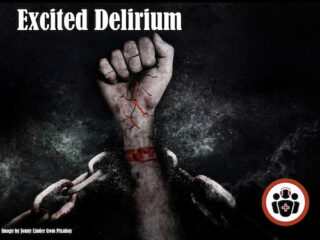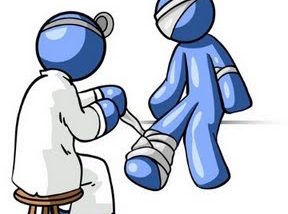EM Cases Main Episodes are round table in-depth discussions with 2 or more EM Cases guest experts, inherently peer reviewed, and edited for a podcast.
Episode 2: Excited Delirium
Dr. Margaret Thompson, Canada's toxicology guru and Dr. Dan Cass review the clinical presentation, precipitating factors and important do's and don'ts in managing patients with Excited Delirium Syndrome to prevent sudden death. They update us on the most current guidelines for Excited Delirium Syndrome and discuss the prevalent theories to explain why many of these patients have cardiac arrests. Excited Delirium Syndrome has recently been recognized by the American College of Emergency Physicians as a true medical emergency in which, typically, a young obese male, often under the influence of sympathomimetic drugs, becomes acutely delirious and displays super-human strength, tachypnea, profuse sweating and severe agitation. Usually, there is a prolonged and continued struggle with law enforcement despite physical restraints . Severe acidosis, rhabdomyolysis and hyperkalemia ensue, often leading to a sudden bradyasystolic cardiac arrest. Listen to this fascinating episode to find out how you can recognize and treat this important syndrome.


